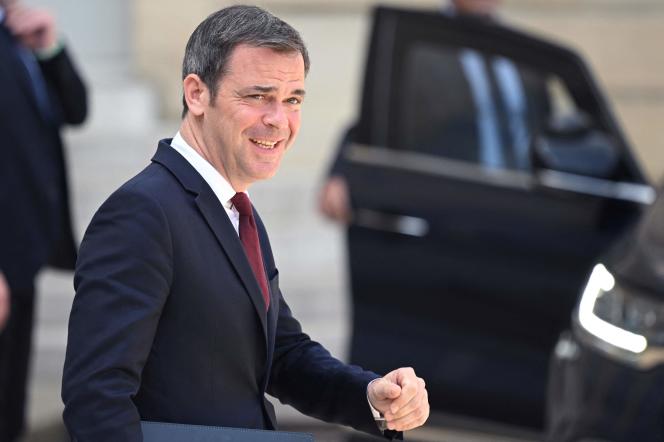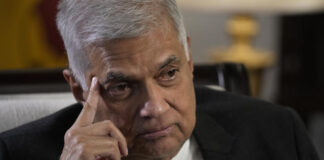Olivier Véran becomes Minister Delegate in charge of relations with Parliament and democratic life in the government formed by the President of the Republic, Emmanuel Macron, and the Prime Minister, Elisabeth Borne, on Friday May 20. He succeeds in his functions to Marc Fesneau, promoted for his part to the Ministry of Agriculture.
The 42-year-old neurologist was appointed Minister of Solidarity and Health in the government on February 16, 2020 to replace Agnès Buzyn at short notice, then propelled candidate for La République en Marche (LRM) in Paris after the crash of Benjamin Griveaux. As soon as he arrived at the Ministry of Health and Solidarity, Mr. Véran had to manage the health crisis, the health system on the verge of implosion and weakened hospital staff.
If the Minister of Health assured that the authorities had taken the full measure of the crisis sufficiently early, the pressure had increased, while criticism from the opposition multiplied on the lack of tests, masks, the time taken to confine the country, or even on the rhythm of vaccinations.
Pedagogue and good communicator
Over the course of long months of confinements, deconfinements and reconfinements, Olivier Véran has become one of the familiar faces of the daily press conferences dedicated to the evolution of the human toll of the Covid-19 epidemic. He pleaded for widely vaccinating the population and for the establishment of the health pass, the latter having, according to him, proven its effectiveness against the epidemic which, despite everything, caused the death of 147,648 people carrying the disease. SARS-CoV-2 according to Public Health France as of May 18.
Pedagogue, despite a submachine gun flow, Olivier Véran is known to be a good communicator. Found “serious” and “effective” by Emmanuel Macron, he ensures that he remains accessible to elected officials and health officials. On the merits, Olivier Véran does not operate any break in doctrine compared to Agnès Buzyn. On the form, on the other hand, the change of style is important between a personality from the medical elite and the young hospital practitioner launched in politics. “Buzyn refused any debate live on TV. Véran, he goes to the front. He is a good debater. But he gets angry easily, ”notes trade unionist (CGT) Christophe Prudhomme, spokesperson for the Association of Emergency Physicians of France.
It is to François Hollande’s former research minister, Geneviève Fioraso, that the Grenoble native, son of a teacher and an engineer, owes his political career. The deputy of Isère offers him to become his deputy for the legislative elections of 2012 after having met the young doctor, then spokesperson for the National Intersyndicale of hospital interns, while visiting his neurology department at the Grenoble University Hospital. He accepts immediately. In the wake of the election of François Hollande, Geneviève Fioraso enters the government, and he becomes a deputy. This father of two is making a name for himself by pushing a highly publicized amendment, which will be adopted, to prohibit modeling activity for people who are too thin.
Socialist tendency DSK
He was then spotted by Emmanuel Macron’s political adviser, Stéphane Séjourné, who invited him to Bercy. Olivier Véran, who cultivates a socialist sensitivity with a DSK tendency, is seduced by the “reforming will” of François Hollande’s Minister of the Economy. At the end of this meeting, the socialist deputy pledged allegiance by SMS: “I want to be the first of the macronists. He will be at the forefront of the creation of En Marche!, in April 2016.
Elected under the label La République en Marche in the constituency of Geneviève Fioraso in 2017, who passed the torch to him, he became general rapporteur of the Social Affairs Committee of the National Assembly, a strategic position. He voted for the creation of a flexible tax on sugary soft drinks, defended the experimentation of therapeutic cannabis and passed a provision allowing hospital emergencies to be paid when they refer non-emergency patients to city medicine. An experiment that irritated many liberal doctors but did not prevent him from being appointed Minister of Health.
In July 2020, the Ségur de la santé led, after several weeks of discussions with the unions, to the announcement of major investments for the healthcare system, but which did not always satisfy professionals exhausted by years of budget cuts.

















